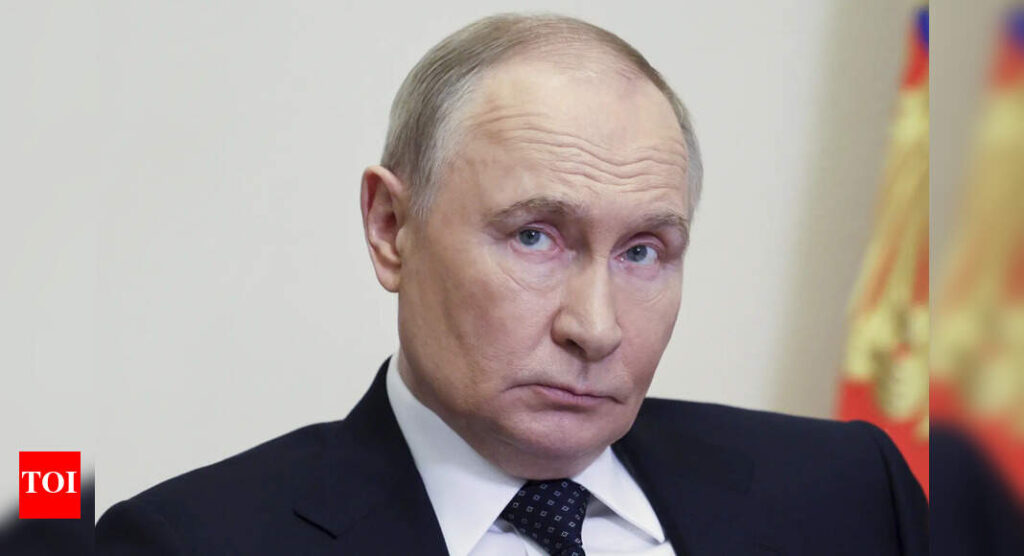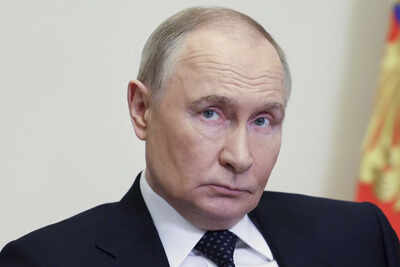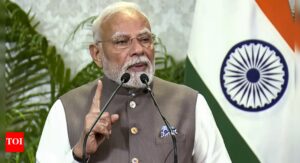‘How and when’: Kremlin vows response to Ukraine; Putin offers to mediate US-Iran nuclear standoff

The Kremlin said on Thursday that it will determine “how and when” to respond to Ukraine’s recent drone attacks on Russian military airfields, even as it escalated its own overnight strikes on Ukrainian cities, killing at least five civilians, including a one-year-old child.The comment came shortly after a phone call between Russian President Vladimir Putin and Donald Trump, in which the Russian leader reportedly signaled a “very strong” retaliation to Ukrainian drone incursions. Kremlin spokesperson Dmitry Peskov said the timing and method of Russia’s response would be determined by Moscow alone.While missiles rained down on Ukraine, Putin positioned himself on another geopolitical stage: the stalled Iran nuclear negotiations. According to Peskov, Putin has offered to use his country’s “close partnership” with Tehran to help resolve the standoff with Washington.Putin steps into Iran-US nuclear impasse“We have a close partnership with Tehran,” Peskov said Thursday. “And President Putin said that he was ready to use this partnership to help resolve the Iranian nuclear issue.”The comment followed a Wednesday phone call between Putin and Trump. The US president later told reporters that Putin was willing to “participate” in negotiations over Iran’s nuclear program, while accusing Tehran of “slow-walking” its response to Washington’s proposals.The US and Iran have held five inconclusive rounds of talks since April, aimed at reviving a version of the 2015 nuclear deal that Trump abandoned in 2018. A key sticking point remains Washington’s insistence that Iran halt all uranium enrichment—something Tehran argues it is allowed under the Nuclear Non-Proliferation Treaty.Iran’s supreme leader Ayatollah Ali Khamenei pushed back sharply earlier this week, calling the US demands incompatible with national interests.The Kremlin, meanwhile, has reaffirmed Tehran’s right to peaceful nuclear energy and is seen by analysts as attempting to leverage its growing military partnership with Iran—bolstered by Tehran’s supply of Shahed drones for use in Ukraine—to reposition itself as a diplomatic power broker.Drone terror in UkraineWhile talks over Iran simmered, Moscow’s war in Ukraine intensified.In the northern city of Pryluky, a swarm of six Shahed drones hit residential areas around 5:30 am Thursday, killing five civilians—among them a baby, his mother, and grandmother. President Volodymyr Zelenskyy said the child was the grandson of an emergency worker who responded to the scene only to find his own home destroyed.“This is another massive strike,” Zelenskyy said. “It is yet another reason to impose the strongest possible sanctions and apply pressure collectively.”Kharkiv and Kherson were also hit overnight. At least 17 were injured in Kharkiv, including a pregnant woman and a 93-year-old, as drones struck two apartment buildings. In Kherson, four Russian glide bombs injured three people.With peace talks stalled and U.S. diplomatic efforts faltering, Ukraine’s top aide Andriy Yermak urged Washington for more pressure on Moscow and greater air defense aid. Germany’s new chancellor, Friedrich Merz, is expected to discuss ongoing Western support in a meeting with Trump later Thursday.As Russia signals a long-game approach to retaliation, and simultaneously inserts itself into Middle East diplomacy, the Kremlin’s message remains clear: the world will have to wait for when—and how—Putin decides to act.






